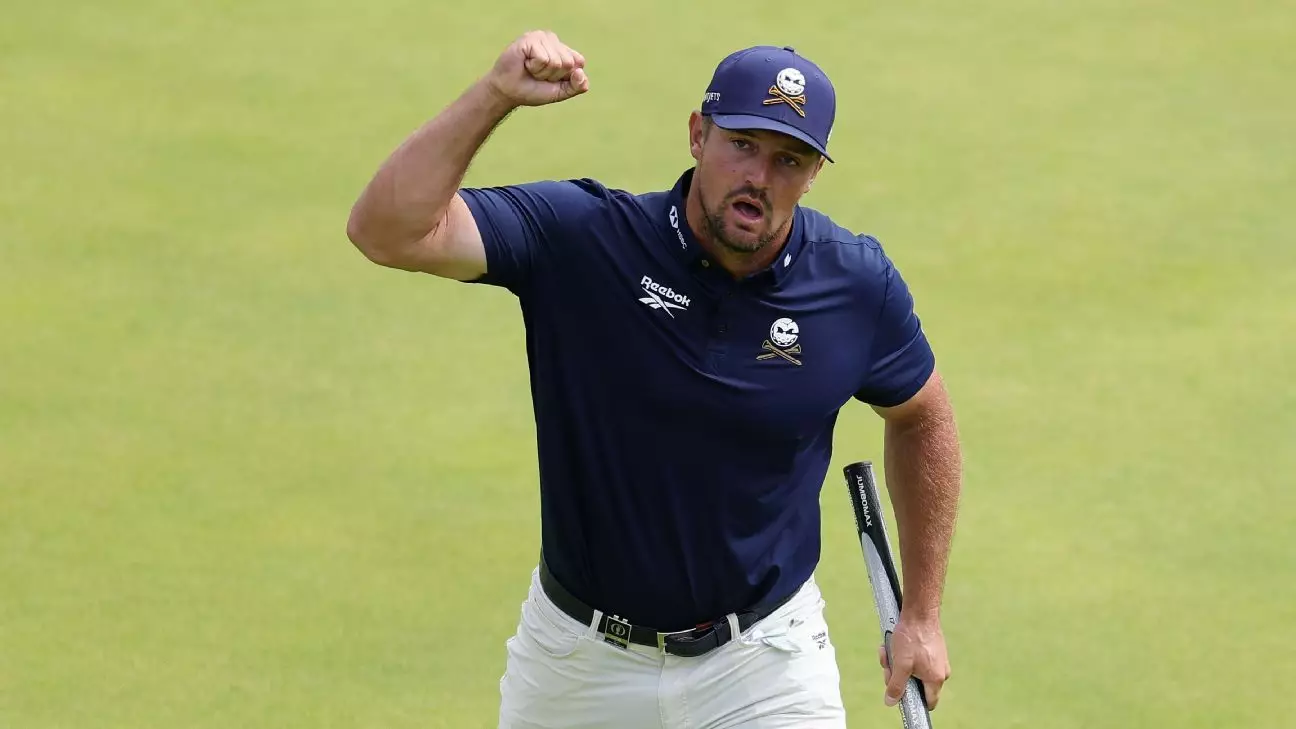Bryson DeChambeau’s recent performance at the Open Championship exposes a broader issue within American golf: the overemphasis on individual brilliance often masks the systemic flaws within the national team strategy. After a disheartening opening round score of 78, DeChambeau’s remarkable turnaround, including three consecutive under-par rounds and a Sunday 64, not only elevates his standing but also casts a stark light on the shortcomings of our current approach to nurturing talent and team cohesion. His journey from near anonymity to top-tier contender demonstrates a raw, undeniable talent but also signals that the system isn’t built to consistently produce sustainable success; it relies too often on flashes of individual greatness rather than cohesive, strategic development.
The Myth of Self-Reliance as a Strategy
DeChambeau’s comments reveal an underlying philosophy that champions individual performance over collective effort—an ethos that might work in isolated instances but is dangerously inadequate for the complexities of international team competitions like the Ryder Cup. His assertion that players should “let the individual be the best individual they can possibly be” neglects the importance of synergy, communication, and shared strategic understanding that are crucial in match-play team formats. Relying on raw talent alone, without fostering team unity, risks turning a competitive event into a chaotic aggregation of stars rather than a disciplined, well-oiled unit.
The Illusion of Meritocracy in Team Selection
While DeChambeau’s push to secure a spot on the U.S. team may seem to exemplify meritocratic principles, it also highlights the deeper issues with how players are endorsed and selected within the American system. The current focus appears to be on individual points and rankings, which, although important, do not always translate into team chemistry or clutch performance under pressure. The potential role of Keegan Bradley as a playing captain further underscores inconsistency: a leader hesitant about his own readiness and contemplating possible withdrawal, which reflects uncertainty at leadership levels. This lack of clear, long-term planning undermines the credibility of American leadership and raises questions about whether the strategy truly prioritizes team success over individual fame.
The False Hope of Individual Talent to Cover Systemic Deficiencies
DeChambeau’s rapid comeback after a poor first round offers a glimmer of hope, yet it also underscores a dangerous misconception: that individual talent can compensate for organizational failures. Our national team system, marked by an overreliance on star players, often neglects to address foundational issues—such as depth development, strategic coaching, and fostering a unified team culture. This episodic brilliance can be perilously misleading. It creates false hope that raw skill alone can carry the team through high-stakes moments, a strategy that is neither sustainable nor equitable.
The Need for a Cultural Shift in American Golf
The focus must shift from celebrating isolated performances to cultivating a resilient, cohesive team mentality. American golf needs to reject the myth that individual stars are enough and instead invest in building a culture of collaboration and strategic unity. DeChambeau’s individualistic outlook, influenced by his LIV experience, exemplifies an approach that prioritizes personal performance over collective benefit—a mindset that may win individual rounds but hampers the overall team effort. To truly excel in events like the Ryder Cup, the U.S. must embrace a paradigm that values the team as much as individual achievement, fostering camaraderie, shared strategies, and collective responsibility.
DeChambeau’s recent resurgence, while impressive, underscores a key reality: American golf must fundamentally rethink its approach to team competition. Relying on isolated brilliance and individualistic attitudes risks producing fleeting victories rather than enduring success. The future of American golf hinges on its willingness to embrace a more balanced, strategic, and cohesive model—one that elevates the team above the star and recognizes that true greatness is achieved not just through individual prowess but through collective effort and cultural evolution.



Leave a Reply